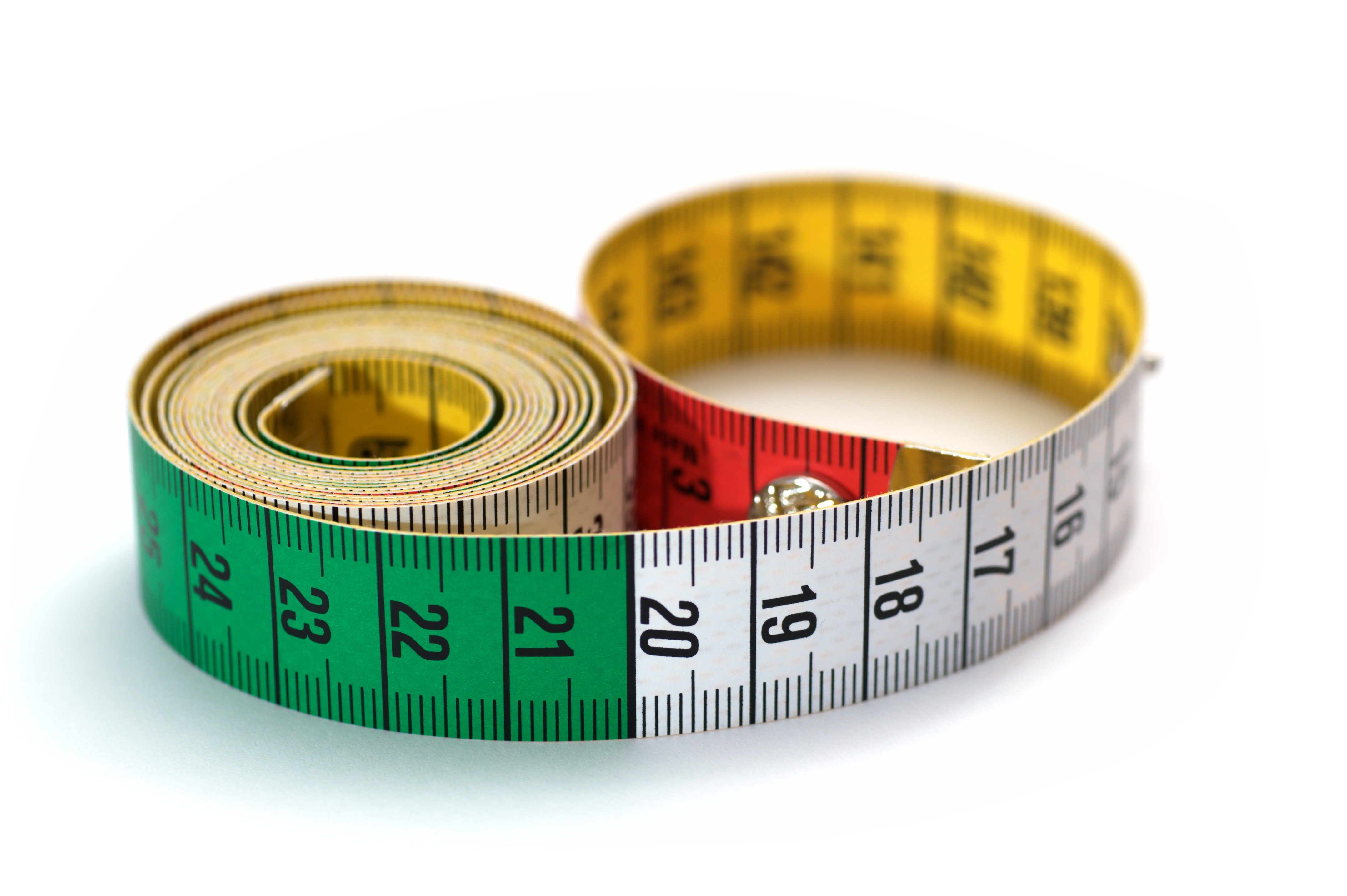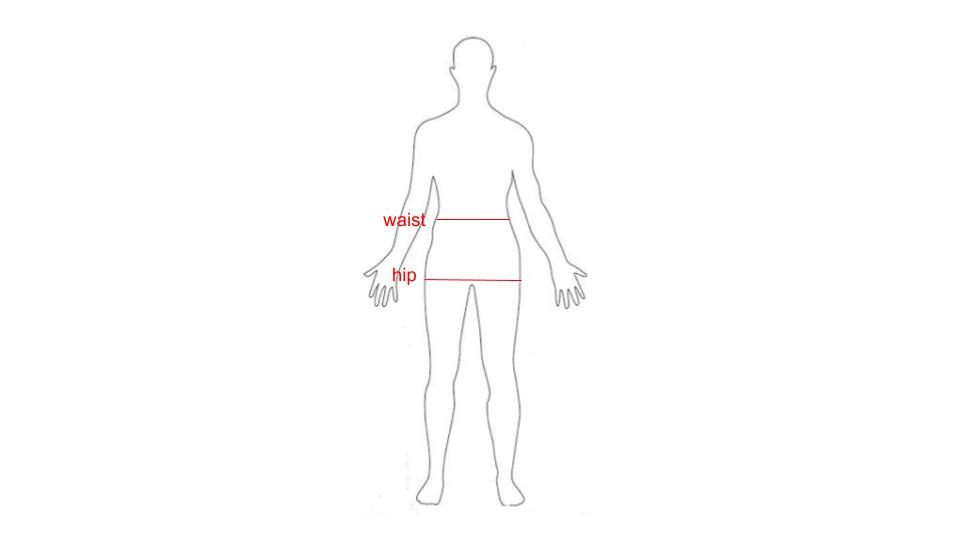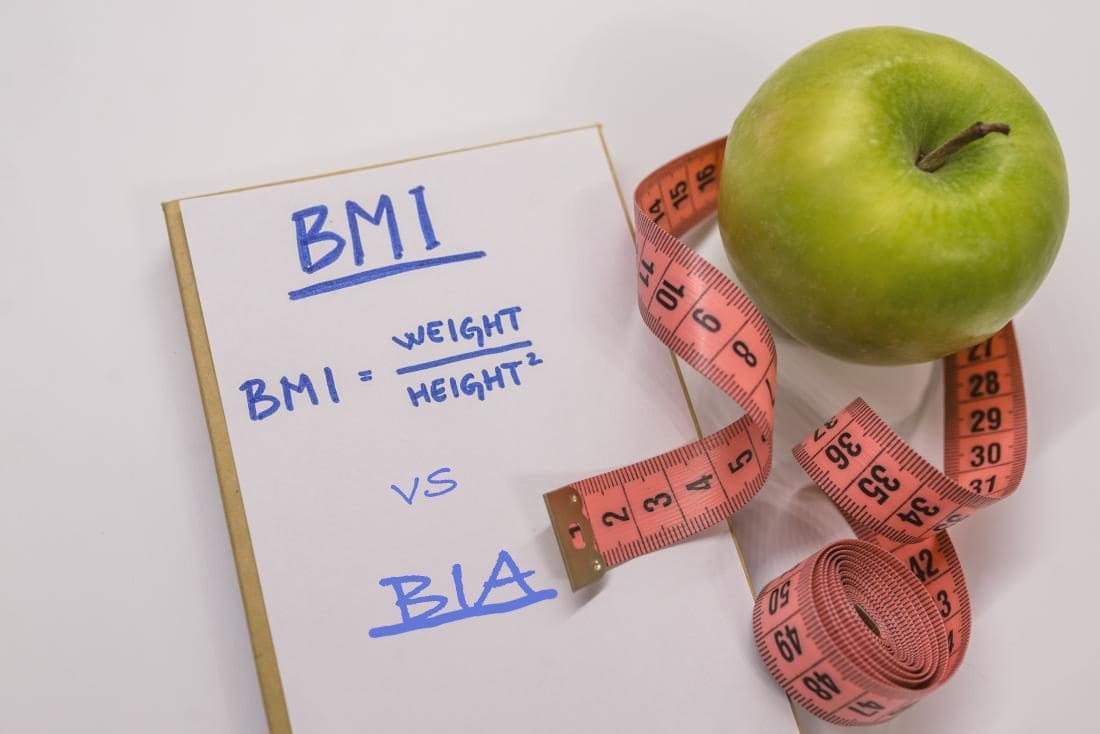BMI is a term that everyone has heard at least once in their life. We have been using it for over 100 years. Many doctors, personal trainers, and other individuals in the health field use it to see where clients fall on the BMI scale. Generally, the higher someones BMI, the more pain and joint discomfort the individual has. This is caused by excess pressure on the joints and inflammation.
BMI stands for Body Mass Index and the number is determined by a math equation (divide an individual’s weight by their height squared). Essentially, a healthy BMI is between 18.5 – 24.99.
The ideal reason BMI is used is to help determine who is at an increased risk for cardiovascular disease, type two diabetes, high blood pressure, and even certain cancers.
However, BMI is not the most accurate measurement around anymore. Waist ratio is another technique that can provide more accurate results than BMI alone. A waist ratio test can be performed at home and is fairly cheap to do. All that is needed is a flexible tape measure (the kind that comes in most sewing kits). In order to obtain the best results with this method, it is recommended the test be done three times a row. Simply take the tape measure and wrap it around the belly button region. Performing this directly on the skin will allow the results to be most accurate. If clothing is needed to be worn, just make sure no puffy items like a jacket or oversized sweater is being worn. Breathe in and on the exhale, wrap the tape around. The tape should not be pulled too tight but should not be left loose enough to slip down. Record the number shown on the tape measure and perform again.
For waist circumference, the high-risk factors begin at 40 inches for males and 35 inches for females.

Another great test is the waist to hip ratio. This test involves the waist measurements from the above test as well as hip circumference. To measure the hip circumference, the same flexible measuring tape is used but this time wrapped around the widest part of your hips (typically in the middle of the buttock or the middle of a zipper on the pant). It is also recommended that this measurement be done three times for the most accurate answer. Once you have collected the waist and hip circumference, divide the waist size by the hip size.
Example:
waist circumference: 30 inches
Hip circumference: 38 inches
Related Posts
30 / 38 = .78
For women, it is ideal to be under .85 and for men, .90 and under.

Both BMI and waist circumference are great ways to track if you are at a higher risk at home. These two methods are cheap and can track progress from the comfort of your own home. However, the most accurate way to track your body composition is BIA.
BIA stands for bioelectrical impedance analysis. This is the most accurate way to check an individual’s body composition. One of the best BIA machines on the market is the InBody 770. This machine has no estimations. The report only takes 60 seconds to generate and can track the lean mass, water mass, phase angle, and body fat percentage on the body.
This machine can benefit every individual. Especially sports players and those who have been injured. With an injury, we are able to scan the patient and see the amount of water and swelling in a limb. This also applies to a sports injury. We are able to see the difference in muscle mass between the injured limb and healthy limb. The most information is provided with the reports generated from the InBody 770.
Often times, BMI is inaccurate because it does not take the individual’s lifestyle or body build into account. Due to the fact that it is simply based off height and weight, it could show that a professional football player is overweight when in reality this is not the case. Other times, BMI can be misleading when an individual is very skinny but has no muscle tone. This is referred to as “skinny fat”. Although the BMI could be in the normal range, the amount of fat on the body could still be higher than what is considered a healthy range for their height.
The InBody is able to track all of this information as well as the patient’s history, so each report shows the progress. This allows doctors and patients to analyze and create the best results.
The InBody 270 is a smaller machine, so it is more portable. This machine only takes 15 seconds for accurate results. Measures body mass in each limb and is able to track history for patients.
The InBody 570 is a size between the 270 and 770. This scan takes about 45 seconds and is able to determine the lean mass, body water, body fat and keep a history.
For more information on the InBody and how it can benefit you, please look at this comprehensive guide:
BMI is a great tool to gather data on a large population, quickly. For research purposes, BMI provides decently accurate information and we are able to get a large quantity of numbers in a shorter amount of time. However, for the everyday average person, BMI is not the most accurate measurement out there. Speaking from experience, being in sports my entire life always made my BMI “overweight” even though I was more fit than anyone else in my class. For reasons such as this, BIA is a great choice for athletes and individuals. – Kenna Vaughn, Senior Health Coach
The scope of our information is limited to chiropractic, musculoskeletal, and nervous health issues or functional medicine articles, topics, and discussions. We use functional health protocols to treat injuries or disorders of the musculoskeletal system. Our office has made a reasonable attempt to provide supportive citations and has identified the relevant research study or studies supporting our posts. We also make copies of supporting research studies available to the board and or the public upon request. To further discuss the subject matter above, please feel free to ask Dr. Alex Jimenez or contact us at 915-850-0900.
Table of Contents
References:
“Assessing Your Weight and Health Risk.” National Heart Lung and Blood Institute, U.S. Department of Health and Human Services, www.nhlbi.nih.gov/health/educational/lose_wt/risk.htm.
Bohn, Barbara, et al. “BMI or BIA: Is Body Mass Index or Body Fat Mass a Better Predictor of Cardiovascular Risk in Overweight or Obese Children and Adolescents?” Obesity Facts, vol. 8, no. 2, 2015, pp. 156–165., doi:10.1159/000381227.
Brazier , Yvette, and Daniel Bubnis. “How Useful Is Body Mass Index ( BMI) ? .” Medical News Today, 2017, www.medicalnewstoday.com/articles/255712.php.
“InBody Blog.” InBody USA, inbodyusa.com/blogs/inbodyblog/.
Vogt, Christina. “BIA vs BMI for Predicting Risk for Cardiometabolic Diseases.” consultant360.Com, 2017, www.consultant360.com/exclusives/bia-vs-bmi-predicting-risk-cardiometabolic-diseases.
Post Disclaimer
Professional Scope of Practice *
The information on this blog site is not intended to replace a one-on-one relationship with a qualified healthcare professional or licensed physician and is not medical advice. We encourage you to make healthcare decisions based on your research and partnership with a qualified healthcare professional.
Blog Information & Scope Discussions
Welcome to El Paso's Premier Wellness and Injury Care Clinic & Wellness Blog, where Dr. Alex Jimenez, DC, FNP-C, a board-certified Family Practice Nurse Practitioner (FNP-BC) and Chiropractor (DC), presents insights on how our team is dedicated to holistic healing and personalized care. Our practice aligns with evidence-based treatment protocols inspired by integrative medicine principles, similar to those found on this site and our family practice-based chiromed.com site, focusing on restoring health naturally for patients of all ages.
Our areas of chiropractic practice include Wellness & Nutrition, Chronic Pain, Personal Injury, Auto Accident Care, Work Injuries, Back Injury, Low Back Pain, Neck Pain, Migraine Headaches, Sports Injuries, Severe Sciatica, Scoliosis, Complex Herniated Discs, Fibromyalgia, Chronic Pain, Complex Injuries, Stress Management, Functional Medicine Treatments, and in-scope care protocols.
Our information scope is limited to chiropractic, musculoskeletal, physical medicine, wellness, contributing etiological viscerosomatic disturbances within clinical presentations, associated somato-visceral reflex clinical dynamics, subluxation complexes, sensitive health issues, and functional medicine articles, topics, and discussions.
We provide and present clinical collaboration with specialists from various disciplines. Each specialist is governed by their professional scope of practice and their jurisdiction of licensure. We use functional health & wellness protocols to treat and support care for the injuries or disorders of the musculoskeletal system.
Our videos, posts, topics, subjects, and insights cover clinical matters and issues that relate to and directly or indirectly support our clinical scope of practice.*
Our office has made a reasonable effort to provide supportive citations and has identified relevant research studies that support our posts. We provide copies of supporting research studies available to regulatory boards and the public upon request.
We understand that we cover matters that require an additional explanation of how they may assist in a particular care plan or treatment protocol; therefore, to discuss the subject matter above further, please feel free to ask Dr. Alex Jimenez, DC, APRN, FNP-BC, or contact us at 915-850-0900.
We are here to help you and your family.
Blessings
Dr. Alex Jimenez DC, MSACP, APRN, FNP-BC*, CCST, IFMCP, CFMP, ATN
email: coach@elpasofunctionalmedicine.com
Licensed as a Doctor of Chiropractic (DC) in Texas & New Mexico*
Texas DC License # TX5807
New Mexico DC License # NM-DC2182
Licensed as a Registered Nurse (RN*) in Texas & Multistate
Texas RN License # 1191402
ANCC FNP-BC: Board Certified Nurse Practitioner*
Compact Status: Multi-State License: Authorized to Practice in 40 States*
Graduate with Honors: ICHS: MSN-FNP (Family Nurse Practitioner Program)
Degree Granted. Master's in Family Practice MSN Diploma (Cum Laude)
Dr. Alex Jimenez, DC, APRN, FNP-BC*, CFMP, IFMCP, ATN, CCST
My Digital Business Card


